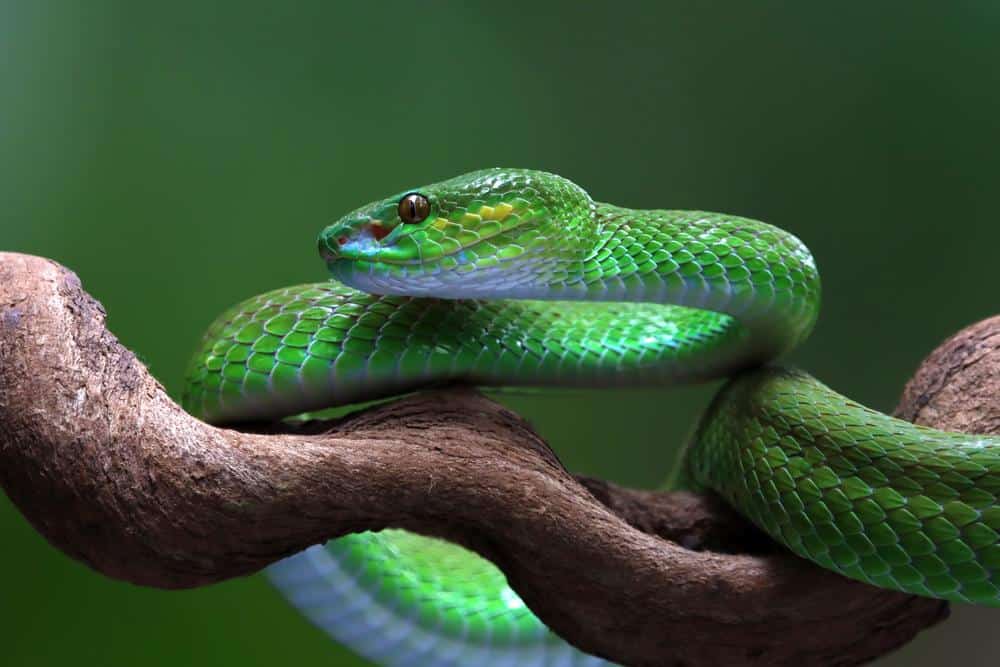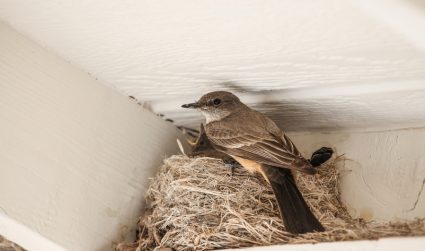
Snakes can be a source of fear and anxiety for many homeowners. Whether you live in a rural area or a bustling city, the last thing you want to encounter in your backyard is a slithering snake. The good news is, there are many ways to repel snakes and keep them away from your property. In this in-depth guide, we will explore various methods – from natural repellents to landscaping techniques – to help you create a snake-free environment.
Snakes can be repelled by incorporating certain plants into your landscape, such as marigolds, lemongrass, and garlic. You can also use natural repellents like essential oils, ammonia, vinegar, and Epsom salt. Additionally, maintaining a clean yard, removing potential hiding spots, and eliminating food sources can help make your property less attractive to snakes. However, if you find a snake on your property, it’s best to contact a pest control company to have it safely removed.
Natural Snake Repellents
One of the most effective methods to repel snakes is to leverage their natural aversions. Here are some substances and plants that can help deter snakes:
Plants
Certain plants are known to repel snakes due to their strong scents. These include marigolds, allium, lemongrass, mother-in-law’s tongue, garlic, wormwood, pink agapanthus, snakeroots, and basil. Incorporating these plants into your landscape can help keep snakes away.
Essential Oils
Essential oils like cinnamon and clove oil can also be effective in repelling snakes. Mix these oils together and spray them in areas where snakes have been seen.
Other Natural Repellents
Other substances like ammonia, vinegar, fox urine, and Epsom salt can also deter snakes. Soaking rags in ammonia or sprinkling fox urine around your property can help deter snakes, as they are natural predators of snakes. Pouring white vinegar around the edges of ponds and pools or sprinkling Epsom salt around your home or garden can also create a strong odor that snakes won’t want to come close to.
Factors That Repel Snakes
Several key factors can naturally repel snakes from certain environments:
Lack of Prey
Snakes are attracted to areas with abundant prey, such as rodents, birds, frogs, and insects. Controlling populations of these potential food sources can make an environment less attractive to snakes.
Absence of Hiding Spots and Breeding Grounds
Snakes prefer environments with hiding spots and breeding grounds, such as tall grass, mulch, and large rocks. Keeping grass short, avoiding overwatering lawns, and using smaller tight-fitting rocks like gravel or river rock in landscaping can help repel snakes.
Strong and Disrupting Smells
Snakes are sensitive to certain smells, such as sulfur, vinegar, cinnamon, and garlic. Using natural repellents like garlic spray, essential oils (clove and cinnamon), or vinegar can help keep snakes away.
Lack of Water Sources
Snakes need access to water for drinking and may inhabit areas near ponds, streams, or other water sources. Eliminating standing water and making these areas less accessible can help reduce snake attraction.
Presence of Natural Predators
Snakes are less likely to reside in areas where they are exposed to predators such as owls and hawks. Encouraging the presence of birds of prey can help repel snakes.
Landscaping and Property Management Techniques
Landscaping and property management techniques can be used to repel snakes by focusing on eliminating their food sources, hiding spots, and making the environment less attractive for them. Here are some effective methods:
- Maintain your lawn: Mow grass often and keep it short, as snakes are less likely to reside and move through short grass.
- Avoid overwatering: Excess water may attract prey species such as worms, slugs, and frogs, which in turn may attract snakes.
- Trim trees and shrubs: Keep them away from your home and garage, and maintain a 24-to-36-inch space under trees and shrubs to discourage snakes.
- Seal cracks and crevices: Inspect your property for openings that snakes could use to enter and seal them.
- Remove hiding spots: Eliminate debris like piles of leaves, old branches, wood piles, and rock piles from your landscape.
- Eliminate standing water: Repair leaky faucets, replace leaky hoses, and maintain water features to prevent attracting snakes.
- Use natural repellents: Some substances like sulfur, clove and cinnamon oil, and vinegar may help repel snakes when poured around the perimeter of your property.
- Encourage natural predators: Cats, raccoons, pigs, turkeys, guinea hens, and foxes can help keep snakes away.
- Avoid using mulch and large rocks: These can attract snakes and their prey, creating breeding and overwintering habitats.
- Keep bushes and shrubs trimmed: Reduce or remove places where snakes like to hide, such as under bushes.
By implementing these techniques, you can make your property less attractive to snakes and reduce the likelihood of them entering your yard or home.
Conclusion
In conclusion, while no single method or plant is guaranteed to repel all snakes, combining several snake-repellent plants and other natural repellents is the best way to ensure no snakes will crawl around your garden. Additionally, maintaining a clean and clutter-free yard, removing potential hiding spots, and eliminating food sources (such as rodents) can help make your property less attractive to snakes. If you find a snake on your property, it is recommended to contact a pest control company to have it safely removed.
Frequently Asked Questions
Can snakes climb walls or trees?
Yes, some species of snakes are excellent climbers and can climb walls, trees, and other vertical surfaces.
Are there any commercial snake repellents available in the market?
Yes, there are commercial snake repellents available in the market. These usually contain ingredients like sulfur and naphthalene. However, their effectiveness varies and they should be used as part of a larger snake control strategy.
How often should I use natural repellents like essential oils or vinegar?
Natural repellents should be reapplied regularly for them to be effective. The frequency will depend on the specific repellent, but generally, they should be reapplied at least once a week or after heavy rain.
Will killing a snake deter other snakes from coming?
Killing a snake will not necessarily deter other snakes from coming. Snakes are attracted by environmental factors such as food availability and suitable habitat. Removing these factors is a more effective way to deter snakes.
Are all snakes dangerous?
Not all snakes are dangerous. While some species, such as rattlesnakes, copperheads, and coral snakes, are venomous and pose a threat to humans, many other species are non-venomous and pose no direct threat to humans. However, all snakes should be treated with caution.












